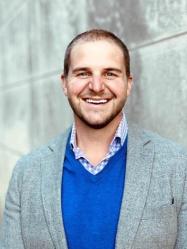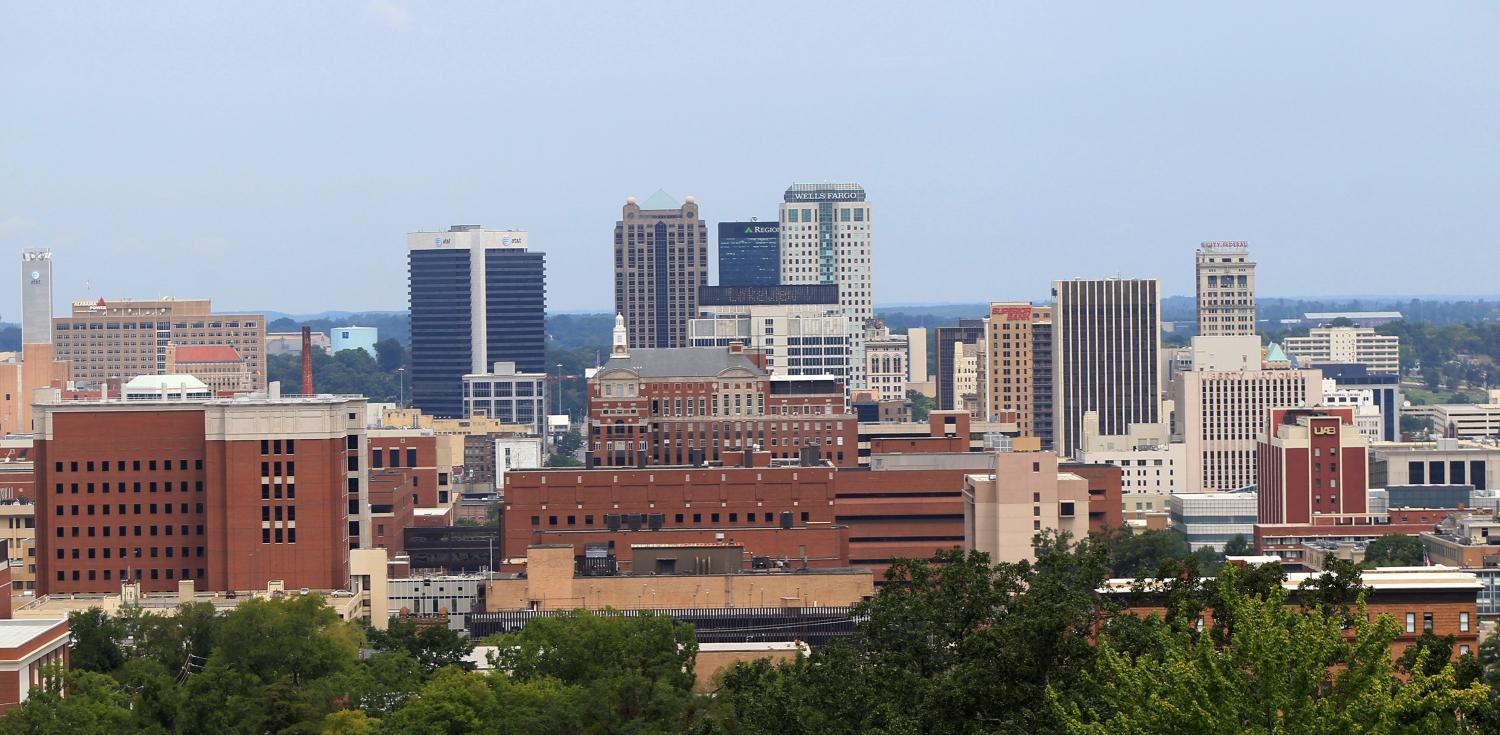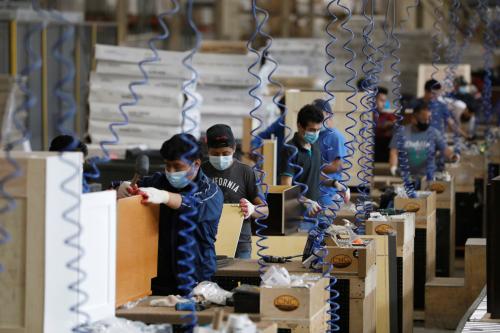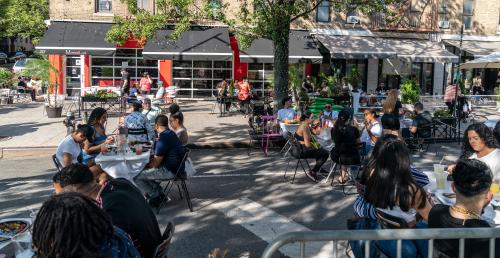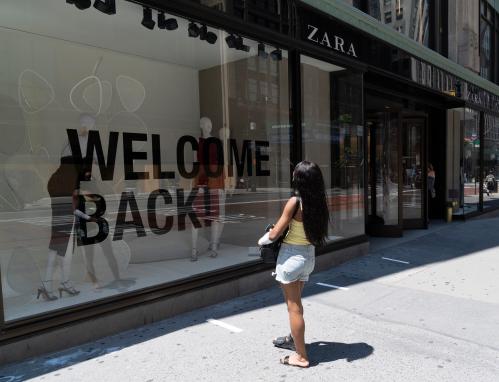The following is an excerpt from Reopening America: How to Save Lives and Livelihoods, a new report where Brookings experts offer ideas to help policymakers protect lives and save livelihoods in the midst of the current COVID-19 pandemic.
In Birmingham, Alabama, COVID-19 has not created a new economic or public health paradigm, but it has sharpened the consequences of the old one. As we face increasing pressure to reopen the economy, we find ourselves balancing several important truths.
A VULNERABLE POPULATION
First, Birmingham is especially vulnerable to the devastating effects of COVID-19 as 74 percent of Birmingham’s residents are Black, 22 percent are 65+ years of age and 43 percent of our families with children live in poverty. With the sixth highest fatality rate in the 1918 flu pandemic, it is hard not to sense a century-old boomerang on a returning flight path.
Second, Birmingham’s economy lagged behind its peers before COVID-19, with just 29 percent of jobs in the tradable sector. Consequently, we knew our economy was particularly vulnerable to a recession, and we are watching it happen at eye-watering speed. According to Burning Glass, job postings—at all skill levels—have fallen by 50 percent, and we are advancing upon a 30 percent unemployment rate. Each day we move closer toward the July 31 expiration of pandemic unemployment insurance (PUI), with 72 percent of our residents having less than $1,000 in savings. Household incomes are unstable, and with more workers than work, residents are more vulnerable than at any point in their careers.
Third, in Birmingham our physical and economic health are two sides of the same coin. Alabama is one of 13 states that did not expand Medicaid under the Affordable Care Act, so workers who lost their jobs do not have a public safety net because adults are not eligible for Medicaid. They must now weather a pandemic without health insurance at a time when the Kaiser Family Foundation estimates the cost of COVID-19 treatment averages $20,000. It is not enough to put into place measures to prevent the spread of infection when so many of our residents are experiencing crippling economic insecurity. Building for better begins with three guiding principles: (1) stabilize families immediately; (2) make workplaces as safe as possible; and (3) implement a sustainable economic inclusion strategy for job growth. We are operationalizing that in a two-part strategy that leverages Coronavirus Aid, Relief, and Economic Security (CARES) Act funding: response and recovery.
THE RESPONSE PHASE
We are in the response phase—cases have not declined while unemployment is still rising and household incomes are dissolving. The city has already spent money to stabilize small businesses, invest in personal protective equipment, and offer frontline city workers overtime and hazard pay. Now, we are developing programs to help families meet basic needs: rent stabilization, subsistence support, expand WiFi for 23 percent of our households without an internet provider, and develop a corner store program to ensure food access while transit is limited. In parallel, we are marshalling our local agencies and boards to bring dollars into our economy by strategically pursuing state and federal grants.
As our state pushes us to reopen the economy, we have enacted a number of local measures, including curfews and face-covering ordinances, to prevent spreading the disease and boost consumers’ confidence in the safety of leaving their homes. We convened public health officials and restaurant owners to craft practical guidelines that ensure widespread adoption to help businesses reopen in a way that protects workers and customers. Finally, we are also partnering with the local health department and UAB—the University of Alabama at Birmingham—to develop a clearly defined testing and tracing strategy that focuses on mobile testing for public housing residents, seniors, and communities of color.
MOVING TOWARD RECOVERY
As we look to the recovery phase, we have to prepare for a very different labor market in COVID-19’s wake. We need data to target growth in industries like population health, supply chain management, data collection, management, and analysis and logistics. We need to reimagine workforce systems (and funding) to repurpose, reskill, and redeploy talent that has been placed on the sidelines. We need to recapitalize our #BhamStrong fund as we reopen the economy, especially targeting minority-owned companies that were disproportionately overlooked by the Paycheck Protection Program.
COVID-19 is disrupting life for all people, but it is destroying it for many working families. This pandemic has revealed the lethality of health disparities and the devastating consequences of valuing economic growth over economic development.
One way we have begun this process is by establishing the Birmingham Service Corps, a program to offer paid volunteer opportunities to meet the emerging needs of COVID-19. The Birmingham Service Corps empowers workers (already more than 700 have applied) who have lost jobs to be a part of combatting COVID-19 in our community through paid service opportunities. This paid work not only reinforces to these workers that we need them, it provides experience and foundational skills for new career trajectories in data collection and management, client services, and precision population health. For example, Birmingham Service Corps is training hundreds of client service workers to become community health workers and contact tracers. As Birmingham invests in precision population health and the needs become greater nationwide, these workers are repositioned competitively.
COVID-19 is disrupting life for all people, but it is destroying it for many working families. This pandemic has revealed the lethality of health disparities and the devastating consequences of valuing economic growth over economic development. Birmingham and communities like ours must be intentional about repairing the fragility that made us vulnerable in the first place.
